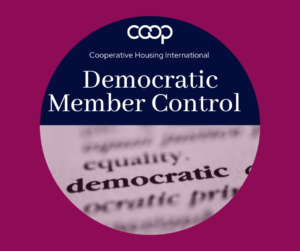Cooperative Principles and Values

In 1995, the International Cooperative Alliance (ICA) updated the Statement on Cooperative Identity to define core cooperative values and seven guiding principles. These principles help cooperatives operate ethically and effectively. For detailed guidance, you can review the Cooperative Principles and Values Guidance Notes, which offer practical advice on applying these principles in cooperative enterprises.

Cooperative Values
Cooperatives base their work on values like self-help, self-responsibility, independence, equality, justice, and solidarity. Members embrace ethical ideals such as integrity, transparency, social responsibility, and caring for others—the same values their founders championed.

Cooperative Principles
Cooperatives put their values into action through these principles. Since the Rochdale Pioneers introduced them in the 19th century, cooperatives have revised the principles to address new challenges while preserving their core ideals.

Voluntary and Open Membership
Cooperatives welcome anyone who benefits from their services and accepts membership responsibilities, regardless of gender, social background, political views, or religion. Although housing co-ops limit membership by available units, they maintain transparency and work actively to remove obstacles during recruitment.

Democratic Member Control
Housing co-ops practice democracy by giving all members equal voting rights (“one member, one vote”). The board promotes active participation and ensures members feel they genuinely own and manage the cooperative, not just use its services.

Member Economic Participation
Members contribute fairly to cooperative resources. Housing co-ops reinvest any surplus into maintenance, improvements, and reserves, prioritizing long-term sustainability over profit and ensuring financial stability.

Autonomy and Independence
Cooperatives manage themselves democratically. Even when partnering with governments or outside groups, they protect their governance autonomy and hold decision-making power within the cooperative.

Education, Training, and Information
Cooperatives provide ongoing education and training to members, leaders, and employees to strengthen participation and governance. They also raise public awareness—especially among youth—about cooperation’s benefits and prepare future leaders.

Cooperation among Cooperatives
Cooperatives collaborate locally, nationally, and internationally to strengthen the movement, share resources, and amplify their collective voice.

Concern for Community
Housing cooperatives promote affordable, quality housing and support safe neighborhoods. They commit to social responsibility and environmental stewardship to benefit current members and future generations.
Why Cooperative Principles Matter for Housing Co-ops
Cooperative principles guide housing co-ops in governing themselves and engaging with their communities. Following these principles helps co-ops preserve their founding ideals, improve governance, and enhance members’ quality of life. By applying them, co-ops build strong, sustainable communities that meet members’ needs effectively.
For broader descriptions, visit the ICA website at https://www.ica.coop/en.

